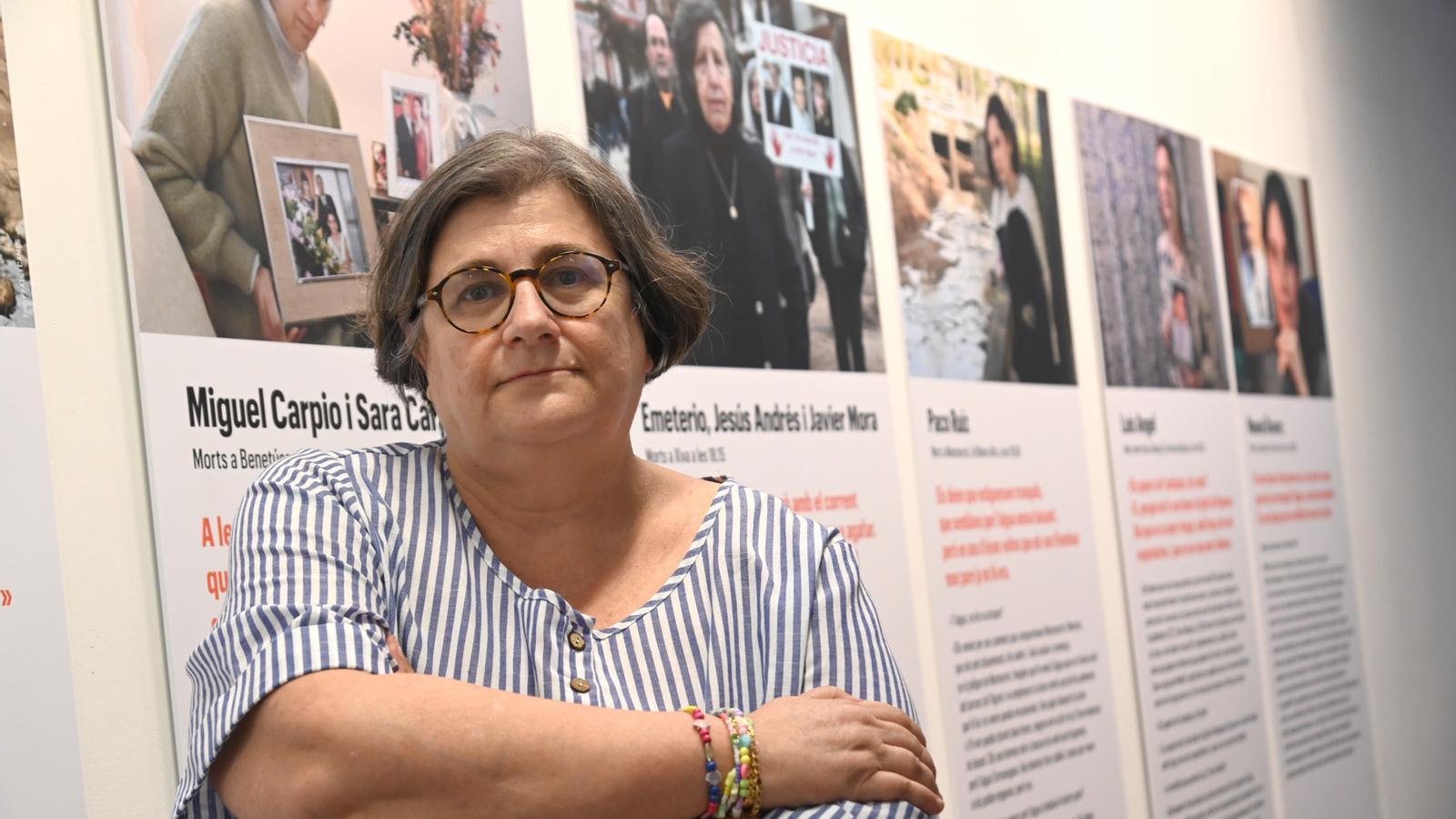Esperança Camps: "I'm sure it will be known where Mazón was on the 29th."
Journalist

ValenciaThe journalist Esperanza Camps (Ciutadella de Menorca, 1964) publishes The deceased of Mazón in Vilaweb Llibres. The work examines the consequences of the DANA (National Anti-Drug Attack) of October 29, 2024, in the Valencian Community, focusing on the pain suffered by the victims and their families. To this end, it features eight extensive interviews, two previously unpublished and six that have already appeared in VilawebThe book is completed with an analysis of the Consell's management during the tragedy and the subsequent citizen mobilization.
The title is compelling. Is Carlos Mazón responsible for the 228 deaths?
— He is the president of the Generalitat (Catalan government). He is responsible for appointing his advisors, allocating powers, and overseeing the government's actions. Then there's all his behavior on the 29th. The absences, the lies, the lack of communication with the people who were supposed to be making the decisions...
In the book, he claims that Mazón worked with the "goal of covering up negligence and destroying evidence."
— Since the 29th, what he's done is distance himself from the decision-making process, when the judge is precisely trying to determine whose responsibility it was to make the decisions and warn the population. In addition, there's the entire communications strategy that led him to start talking about reconstruction and aid just a few days after [the tragedy]. Mazón is trying to construct a parallel reality that would lead him, at the very least, to being investigated. There are many things he hasn't said yet, or if he has, later, thanks to the work of the media, it has been discovered that they weren't true.
There is a gap in the president's agenda between 6:57 p.m. and 7:34 p.m.According to his version, he was at the Palau de la Generalitat, but at the same time he tells us that he didn't make any phone calls during that time. Do we believe him?
— No, because they rushed to show us the screenshot from 8:28 p.m. [when he arrived at the Cecopio], but they haven't shown us the Palau security cameras. He hasn't provided the location of the drivers or the bodyguards. If you have nothing to hide, you tell everything. The judge invited him to testify voluntarily twice, but he didn't go. Why didn't he show the call list like [Salomé] Pradas did?
Do you have any hypothesis?
— No, but I'm sure it will be known, because one person can't erase all the evidence either. At some point, probably during the trial, someone will decide that taking all the blame might not be the right thing to do.
Is the fact that the media hasn't had any leaks about what he did during that time period a failure?
— No, not at all. Most of the Valencian media have been providing very good coverage. We're all reminded of the subway accident [of July 3, 2006]. Francisco Camps's strategy of silence worked for many years because the public media were what they were, because other media didn't make an effort, and because society wasn't the same either.
Does this different response indicate a change in Valencian society?
— I think so. In the subway accident, the victims' families gathered every day, three days a week, and they were alone. This didn't happen [with DANA]. 10 or 12 days after the catastrophe, 130,000 people reactedIf you ask me electorally, I don't know; because the opposition parties' ability to offer an alternative is what matters.
So the narrative that Mazón claims he's building isn't taking hold?
— I don't know. But if we take into account the survey published by the newspaper Levant [which coincides with a later one from the CIS], 80% of the population believed that Mazón should resign.
How do you rate the instruction?
— There's a thermometer in the extreme right's haste and desire to remove her from the case. The judge seems to be building a case with extensive documentation so that when it reaches the Supreme Court, it can't be overturned.
How do you assess the Spanish government's performance during the DANA crisis?
— Emergency powers fall to the Generalitat. It had the capacity to leave it in the hands of the State, but it didn't. Then there are all the accusations against each other, but the victims feel they haven't been abandoned by the Spanish government because they have had ongoing dialogue.
What word sums up what the victims feel?
— I can't speak on their behalf, but those I've spoken to feel helpless and are demanding justice and that the president of the Generalitat not be Carlos Mazón, because that deeply offends them.
